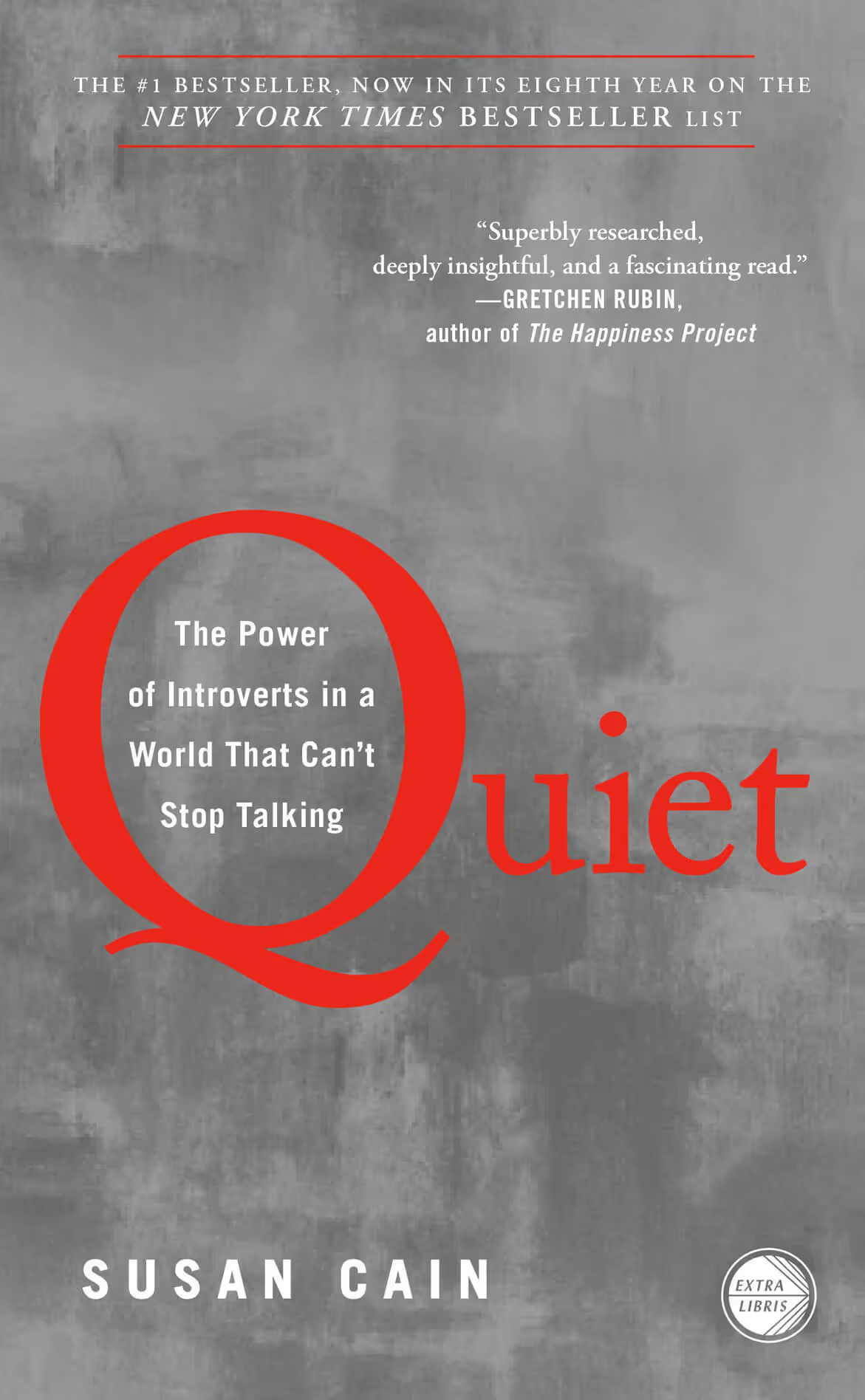Susan Cain
Quiet: The Power of Introverts in a World That Can’t Stop Talking
When it comes to leadership and creativity, we need introverts doing what they do best
Self Reflection
Are you an extrovert? An introvert? Maybe even an ambivert? We asked some of our Trig team members how they saw themselves and the answers weren’t always what we expected. Common stereotypes would have us believe that our engineers and designers are the reserved pensive sort. Turns out we have a family made up of all three personality styles!
A Novel Idea
Quiet by Susan Cain illustrates the point that while 1/3 of all people are introverts, workplaces in the United States are increasingly designed with only one personality type in mind: extroverts. Open floor plans, team brainstorming sessions, meetings dominated by the loudest voice. How did we get here and is there no room at the table for the more tranquil among us? Cain postulates that it is a mistake to ignore the subtle power an introvert can offer, and that by leaving their needs unaddressed we are all missing out on a necessary component to a well rounded job environment.
Culture Shift
In the early 1900s things changed. Big business boomed and people started migrating to cities and spending their days on the job with strangers instead of living and working in their smaller home communities surrounded by people they knew. Before then you had friends and relatives to hire, and knew to steer clear of the family yours was feuding with. But what happened when people were making hiring decisions without such information? Suddenly job candidates had to become salesmen not just of products but of themselves. Larger-than-life dazzling personalities began to win the day, right or wrong, which was a departure from a prior moral focus on character traits that anyone could work on like discipline, integrity, honor.
That Which is Left Behind
Where did we end up? Unfortunately for introverts we ended up with a love for style ahead of substance. Susan Cain goes on to talk about how pushing introverts to the sidelines was one of the many circumstances that lead to the financial crisis of 2008. So many companies were predominately comprised of over the top yes-men that nobody was listening to the meek voices in the room saying to hold back, to wait. Introverts do a lot of listening, studying, considering. They don’t jump into decisions with partial information. Extroverts help us be bold. Introverts help us be realistic.
Where to Go From Here
Quiet was written in 2012, but still holds a lot of truth in 2018. Society is just starting to notice the imbalance, as evidenced by large numbers of concurring studies popping up with this very same idea in mind. Employers around the United States have had plenty of time to try out offices with no walls and the results are not as cheery as anticipated. Reports show feelings of paranoia, lack of privacy, anxiety. Workers say there is nowhere they can find a moment of peace. Productivity drops with a groupthink approach. Our population is noticing that something is amiss. We are fortunate here at Trig to have a unique approach to collaboration. By working entirely digitally we make room for exactly the right amount of recharge time for our introverts to be comfortable thinking through challenges from every angle without unnecessary distractions. Extroverts are able to jump into chat rooms and talk anytime they need feedback. We all love a good presentation! Quiet by Susan Cain is an excellent novel for understanding the balance we all must find to keep workplaces nurturing and fulfilling.

